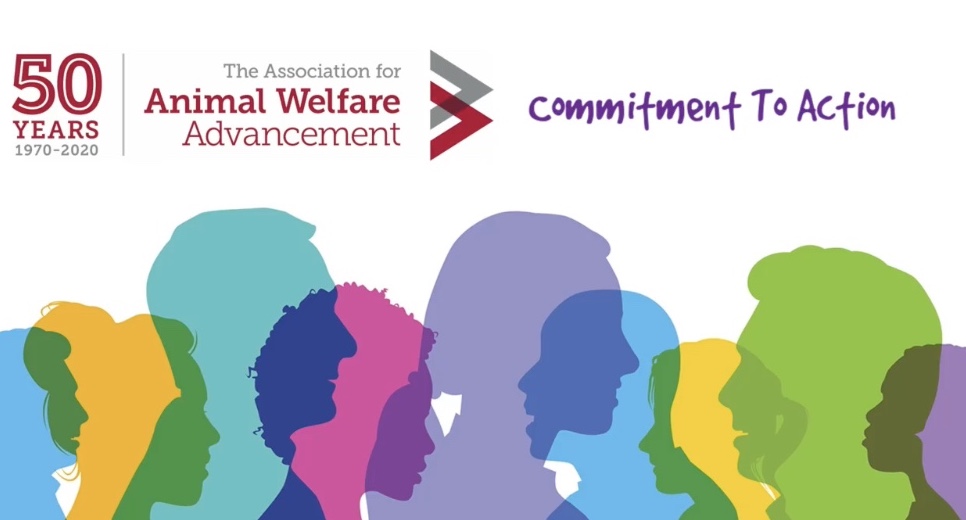News, ideas & inspiration from industry leaders

Are You Expecting Your BIPOC Employees To Educate You?
An open letter to white leadership in animal welfare
As national uprising against racial inequity continues, employers across the United States are urgently looking to find ways to create cultures of inclusion. Oftentimes this begins with the implementation of a task force or working committee dedicated to Diversity, Equity, and Inclusion (DEI). Several animal welfare organizations doing this work have noticed the employees volunteering for committee service are white.
This is not surprising, since Black, Indigenous, People of Color (BIPOC) are severely underrepresented in animal welfare. However, why aren’t more BIPOC employees participating? The answer is simple: It is not the responsibility of systemically oppressed people to dismantle the oppression. The onus is on leadership to take action and implement changes to support racial equity. Learning this lesson was invaluable for me, which is why I’m sharing my story with you.
I unwittingly placed a horrible burden on my BIPOC friends and colleagues
During most of my time in leadership roles, I have trusted the advice and recommendations of my colleagues who do the actual work I am overseeing. I would seek counsel from my veterinary medical director regarding medical policy, a behaviorist for animal behavior theory, and a director of operations for protocol recommendations. I looked to them for their advice because I respected their acquired knowledge and extensive experience. This is an approach I greatly value, as I have learned so much from my colleagues over the years.
My leadership philosophy has always been to listen to your team first– the people who do the work each day. They know the problems and can offer great solutions. This type of leadership is encouraged in continuous improvement methodologies such as Six Sigma, LEAN, Kaizen, Agile Management and others. So, when seeking to understand racial equity and social justice issues, it felt natural for me to seek counsel from my BIPOC friends and colleagues. And what I learned is that I unwittingly placed a horrible burden on them.
My BIPOC friends and colleagues aren’t trained industrial psychologists, social workers, or equity and inclusion consultants. So why did I feel comfortable reaching out to them to understand how to navigate the conversation about diversity, equity or inclusion? Naively, I imagine it was because I respect them, care about their perspectives, and trust them. But whenever I asked them to explain something to me, I was looking through the lens of my white privilege.
How will it be different this time?
Ironically, a meme on Facebook was my first teacher of this lesson. I can’t find it now and wish I had saved it. Essentially it said, “I feel bad for all my black friends who are going to be stuck serving on diversity committees for the next six months.” This one sentence captured so much: the assumption that BIPOC will be expected to serve on diversity committees, that these diversity initiatives are oftentimes short-lived, white virtue signaling, and that this committee service is a burden. And, worst of all, that this is just another predictable moment in time when there would be a lot of talk and little action to eradicate structural racism.
BIPOC know exactly how this goes: media attention garners some deep conversations resulting in committees being formed only to sputter under the heft of new priorities. Thusly we slump back to our old habits and keep our heads down. Nothing changes. Recycle and repeat. BIPOC are used to this cycle because it has been reality for the last two centuries. And yet we ask them to carry the burden of extending the cycle by participating in a DEI committee. How will it be different this time? How much privacy will we ask people to sacrifice so that we white people can better understand racism?
The second teacher of my lesson is a friend who identifies as queer. He helped me understand the emotional stressors and fatigue placed on marginalized groups who are repeatedly asked to explain why someone else’s behavior is offensive. Why must he be the one to explain it? Isn’t it obvious? I immediately thought about all my friends of color who were generous and kind when I ignorantly asked them to educate me over the years. They were patient with me when I asked about terms like “red lining” or “code switching.” They didn’t tell me that I was making them uncomfortable. They never told me how exhausted they were to have yet another white person ask how to solve racism. Imagine bearing the constant encumbrance of racial bias only to be asked to educate a white person.
The trauma is not dissimilar to asking a rape victim to explain why the rape was hurtful and to give advice on how to stop rapists. Yeah. Let that soak in.
This isn’t a BIPOC problem
It’s a problem within white dominant culture. White people should be asking other white people how we create anti-racist policies and practices. Fortunately, I am friends with Amanda Arrington, Senior Director of Pets for Life, a program of The Humane Society of the United States, and probably the most nationally recognized leader on racial and economic inequity in the animal welfare field, and its connection to social justice. Amanda became my third teacher.
Because Amanda is an expert, I was responsibly seeking counsel from a person who has undergone extensive training in this area. She has spent 15 years learning how to be of service to marginalized populations through increasing equity in access to pet resources. She has built a national program with Pets for Life in 50 communities around the country. “We should do the work ourselves and not seek emotional labor from Black, Indigenous, People of Color,” Amanda explained to me. “This doesn’t mean representation isn’t important, because it is vital, or that we don’t use our positions of privilege to elevate voices that are often ignored. But we should do that in the context of all issues, not only racial equity.” This means when we are looking at our adoption, return-to-owner or any other programs, we need to include the BIPOC perspective.
We can’t confuse these two very singular points:
#1) As white people, we need to assume responsibility for our own education regarding racial equity and social justice and not look to BIPOC to teach us. We have to commit to doing the hard work.
#2) We need to make sure that marginalized voices are represented in all facets of animal welfare.
In order to truly address systemic racism in animal welfare, including BIPOC in decision making, programming and policymaking is absolutely necessary. “So that likely means having individual and in-depth conversations with people to share the organization’s commitment and strategy for change in order to make BIPOC comfortable and confident in contributing,” Amanda further explained to me. “If DEI committees are being given the authority to make changes, that cannot be done without BIPOC input and perspective.”
Thankfully, Amanda is also a kind and generous teacher. She assured me that I would make mistakes, stumble through my journey, and learn from my hiccups, just as she has many times over. She gave me permission to admit that I don’t have all the answers. None of us do. She helped me recognize that being a leader means taking responsibility for my own education and accepting that leadership has to take the necessary actions to impart a new culture. When leadership models behavior of listening and learning, a paradigm shift will follow.
Amanda offered me the following exercises and articles as a great place to start among the plethora of information that is available online, in books, and on podcasts. So, I invite you to join me on this pursuit and dig into these resources with me.
- Exercise to rank where your organization is currently and to track progress
- Tools from The Management Center
- How white dominant culture shows up in organizations
- An understanding of structural racism
Oh, and by the way, please don’t dismay if those interested in your newly formed DEI committee are all white employees. Celebrate that your employees recognize the need to learn, discuss, and explore how to create racial equity in your workplace. As their leader, you should provide them with the tools to be successful: use the resources mentioned above. Better yet, hire a professional DEI consultant to help your team navigate the journey and implement change. You hire external trainers for compassion fatigue, sexual harassment, disaster preparedness, cruelty investigations, and animal handling skills. Why should this be any different?
Discussion: The Roundtable: Community Relations During A Time of Unrest
On-demand webinars: Diversity, Equity, and Inclusion Training Package
Blog: If your adoption policies but up barriers, you’re part of the problem


